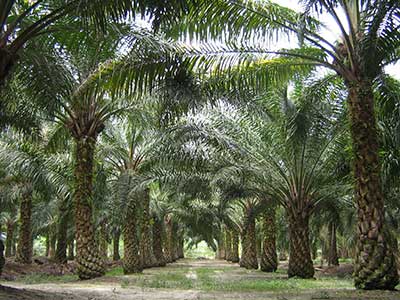Relevance: GS-3: Agricultural produce and issues and related constraints
Key Phrases: Indonesia, Crude Palm Oil (CPO), RBD (Refined Bleached Deodorized) palmolein, Russia-Ukraine conflict, Atma Nirbhar Bharat mission, Public Distribution System.
Context:
- Recently Indonesia announced the ban on export of Palm oil, however later it clarified that the country’s export ban will not apply to crude palm oil (CPO) but only to RBD (refined bleached deodorized) palmolein.
- This clarification has averted a crisis for India. With CPO shipments allowed to continue, domestic refining capacities can now be used to process imported raw palm oil into refined cooking oil.
Background:
- India’s over a fourth of annual edible oil import requirement came annually from Indonesia.
- The gap between India’s oil consumption and production has widened significantly in recent years with the 13 million tonne shortfall now being met by imports of sunoil, soybean oil and palm oil.
- During inflationary spirals though, consumers tend to substitute other costlier mediums with the more affordable palm oil.
- Recently, the Russia-Ukraine conflict and South American crop losses have also disrupted sunoil and soya oil supplies, leading to a 12 to 25 per cent increase in their domestic prices. Thus, currently palm oil has accounted for around 63 per cent of India’s edible oil import basket.
About Palm Oil:
- It’s an edible vegetable oil that comes from the fruit of oil palm trees, having the scientific name Elaeis guineensis.
- Palm oil is an incredibly efficient crop, producing more oil per land area than any other equivalent vegetable oil crop fulfilling 35% of the world’s vegetable oil demand on just 10% of the land.
- Palm oil is an extremely versatile oil that has many different properties and is present in nearly 50 per cent packaged food.
- Palm oil is a major driver of deforestation of some of the world’s most biodiverse forests, specifically in the South East Asian region, destroying the habitat of already endangered species like the Orangutan, pygmy elephant and Sumatran rhino.
Do you know about the National Mission on Oilseeds and Oil Palm?
- Aims and Objectives of the scheme:
- Achieve self-reliance in edible oil.
- Harness domestic edible oil prices that are dictated by expensive palm oil imports.
- To raise the domestic production of palm oil by three times to 11 lakh MT by 2025-26.
- Key features of the scheme:
- The special emphasis of the scheme will be in India’s north-eastern states and the Andaman and Nicobar Islands due to the conducive weather conditions in the regions.
- Under the scheme, oil palm farmers will be provided financial assistance and will get remuneration under a price and viability formula.
- A financial outlay of Rs.11,040 crore has been made for the scheme, out of which Rs.8,844 crore is the Government of India’s share and Rs.2,196 crore is States’ share.
- The proposed scheme will subsume the current National Food Security Mission-Oil Palm programme.
- Benefits and significance of the scheme:
- It is expected to incentivise production of palm oil to reduce dependence on imports and help farmers cash in on the huge market.
Issues:
- Geopolitical tensions and rising prices of agri-inputs spark food shortages the world over, such clampdowns can recur more frequently.
- There is an urgent need for India to reduce its import dependence for its food requirements.
- The long gestation periods of 5-6 years needed for palm oil plantations to bear fruit.
- The environmental blowback faced by producers in India due to exotic nature of Palm oil which depletes surface water very rapidly.
- Difficult to nudge Indian consumers to go back to traditional consumption patterns that favoured locally grown and seed-derived oils produced from mustard, rapeseed, groundnut.
Steps to be taken:
- Policies predictability:
- To step up the indigenous production of oilseeds and oils, the government also needs to adhere to predictable policies on imports and tariffs that offer visibility on realisations to farmers and domestic refiners.
- In the last two years, India’s edible oil policy has been marked by ad-hocism.
- Even while raising MSPs on oilseeds, the Centre has sharply slashed import tariffs on palm oil and freed up hitherto restricted imports of RBD palmolein.
- This has discouraged domestic value addition and allowed imported palmolein to flood in, offering stiff price competition to indigenous oils.
- Striving for a more balanced approach between consumer and farmer interests, the Centre can perhaps consider including indigenous oils in the Public Distribution System to improve their affordability.
Way Forward:
- The excessive dependence on imported edible oil — palm and sunflower — is not a good idea as it exposes the economy to vagaries of international markets.
- India should exploit its deep heritage in indigenous oils, since palm and sunflower oils are new entrants in the last few decades only.
- India should promote those edible oils which suit its agro ecological conditions, arbitrarily going for Palm plantations which is exotic in nature, may hamper the ecological productivity of the region in the longer run.
Source: Live Mint
Mains Question
Q. India should focus on developing its strengths in locally grown and seed-derived edible oils rather on palm and sunflower oils which are not very suitable for agro-ecological conditions of India. Comment. (15 marks)








